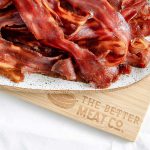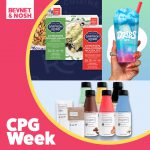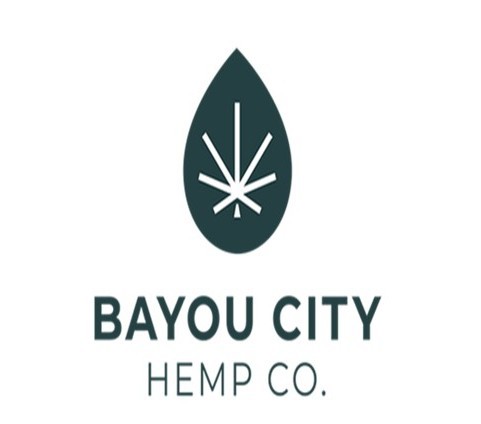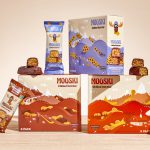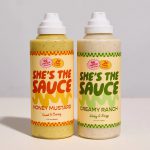Alec’s Ice Cream Rebrands, Raises Capital to Support New Positioning
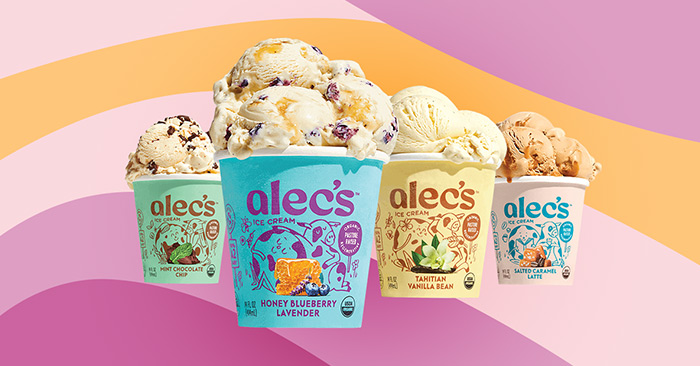
Alec’s Ice Cream wants to be more than just a sweet treat. The two-year old company this month debuted new packaging for its line of indulgent ice cream, a look designed to highlight its switch to using A2 milk from dairy farms practicing regenerative agriculture.
The bright color palette and illustrative style of Alec’s new packaging was designed to highlight “the really unique offering that we have,” according to founder and CEO Alec Jaffe. Having launched in 2020 featuring organic milk from pasture-raised cows, Alec’s recently transitioned to California-based Alexandre Farms, a Regenerative Organic Certified (ROC) dairy operation, as its supplier partner.
“When you see the illustrated cow and earth interacting with each other, it’s tying that to our regenerative supply chain and showing that the cow and the earth can be friends,” he said. “It’s kind of a counter narrative to what it typically is talked about where cows are this climate villain. We just don’t believe that to be true if the cows are raised and managed in the proper way.”
To support this transition and help the brand as it begins to get national distribution, the company is “currently closing” $3.75 million in funding. Investors in the round include Michael Meldman, cofounder of Casamigos; Vinny Smith, founder of Toba Capital; Mark Silverman, founding principal of Alberdi Advisory Corporation; and Anthony Corsaro, managing director of Outlaw Ventures. The capital will bring the company’s total funding disclosed to-date to just shy of $5 million.
Though still new to many shoppers, Jaffe believes consumer interest in A2 milk (which is easier to digest) is only growing. According to research firm Future Market Insights, the global A2 milk market is expected to have a 10.3% compound annual growth rate from 2021 through 2031. There are also 100 million people who are sensitive to dairy, Jaffe said, adding that across the store, digestive-focused products are seeing faster growth than their conventional counterparts.
“[It’s a] no-brainer combination where we can have the best tasting ice cream, the most sustainable ice cream, and also have it be good for your stomach and easy to digest,” he said. “I think people are looking for products that give them that triple threat combination of tastes better, is better for the environment and does better for me.”
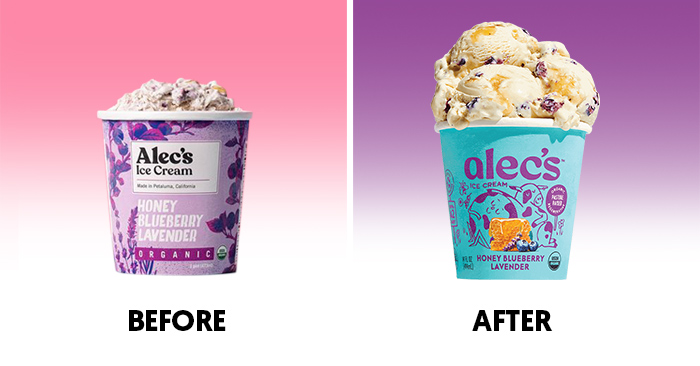
The emphasis on sustainability is fitting considering Alec’s is produced in the former facility of ice cream maker Three Twins. When that company went bankrupt in 2020, Jaffe purchased its production equipment and assumed the plant’s lease. While Jaffe said Three Twins was inspirational, his brand is aiming for the higher end of the category, sitting well above Three Twin’s price of $5 to $6 a pint.
“We are creating a premium product,” Jaffe said.”Ninety-eight percent of our ice cream ingredients are from regenerative sources. And with that, we know that we need to look out for the business and price the product appropriately. And so with a $8.99 suggested retail price, we’re able to still make a margin that positively…allows us to sustain our business.”
While the ice cream pint market has seen sales slow as novelties pick up steam, Jaffe argued that some of that is due to cannibalization between brands. Though there are ice cream offerings focusing on digestion (Beckon), grass-fed dairy ( Cosmic Bliss) and indulgence (such as Van Leeuwen or Ben & Jerry’s), he noted, there are few that deliver on two or more of those attributes. Most new launches, he added, are largely plant-based options — of which, he believes, there is still limited consumer interest.
The ingredient and packaging swap is already paying off, he said. As of the start of the year, the line was sold in about 130 stores in the San Francisco Bay Area. After showing the newest iteration to buyers, he said, more national retailers, including the Fresh Market, Mom’s Organic Market, Harmons Grocery and New Seasons, have picked up the line.
“We were met with just a lot of excitement, from retail buyers,” Jaffe said. “There’s really no one offering this combination of attributes in the category.”
